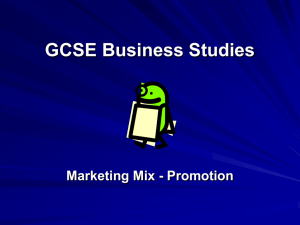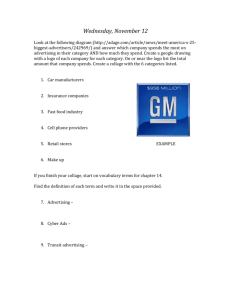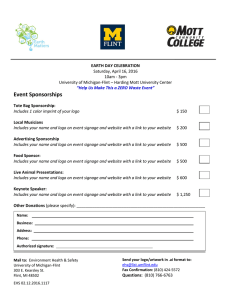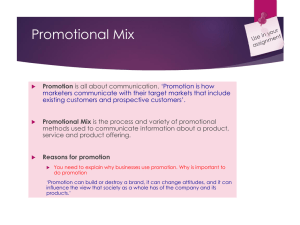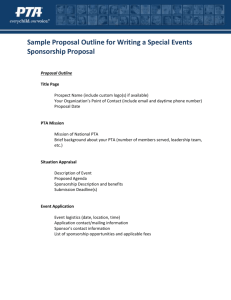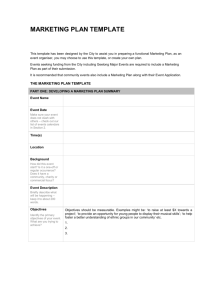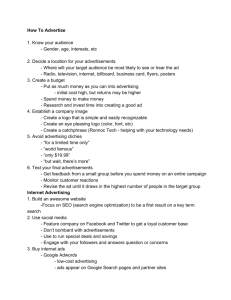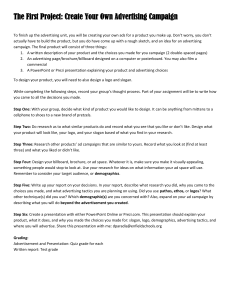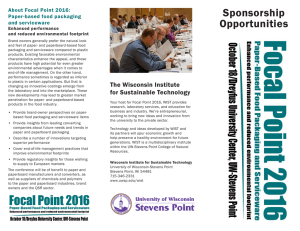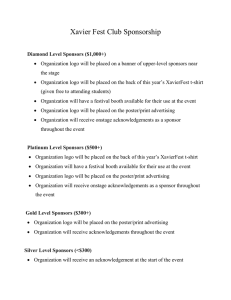MARKETING PLAN TEMPLATE
advertisement
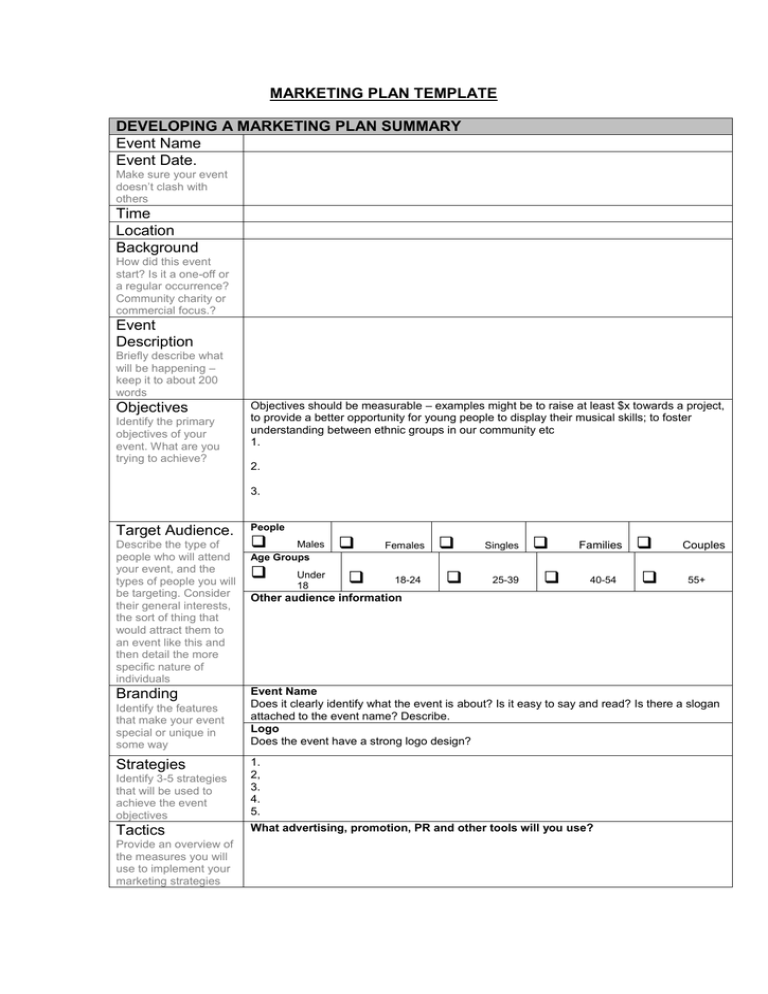
MARKETING PLAN TEMPLATE DEVELOPING A MARKETING PLAN SUMMARY Event Name Event Date. Make sure your event doesn’t clash with others Time Location Background How did this event start? Is it a one-off or a regular occurrence? Community charity or commercial focus.? Event Description Briefly describe what will be happening – keep it to about 200 words Objectives Identify the primary objectives of your event. What are you trying to achieve? Objectives should be measurable – examples might be to raise at least $x towards a project, to provide a better opportunity for young people to display their musical skills; to foster understanding between ethnic groups in our community etc 1. 2. 3. Target Audience. People Describe the type of people who will attend your event, and the types of people you will be targeting. Consider their general interests, the sort of thing that would attract them to an event like this and then detail the more specific nature of individuals Males Age Groups Branding Identify the features that make your event special or unique in some way Under 18 Females 18-24 Singles 25-39 Families 40-54 55+ Event Name Does it clearly identify what the event is about? Is it easy to say and read? Is there a slogan attached to the event name? Describe. Logo Does the event have a strong logo design? 1. 2, 3. 4. 5. Tactics What advertising, promotion, PR and other tools will you use? Provide an overview of the measures you will use to implement your marketing strategies Couples Other audience information Identify 3-5 strategies that will be used to achieve the event objectives Strategies Budget Develop a marketing and promotion budget for your event. What percentage of your overall event budget should/can be allocated to this? Market Research Market research is an important part of your event planning, especially if this is the first time the event has been held. You may need to undertake a survey or research to determine the likely success of the event. If it’s not a new event, records from previous events will help. At the very least you should focus on the “triple bottom line” components of your event .i.e.the economic, social and environmental. Risk Management While your overall event plan will include a risk assessment, you also need to evaluate risks associated with your marketing and promotion. When developing your marketing material make sure you refer back to this list Monitoring Identify the steps you will take to evaluate the success of your event. This should be measured by things such as meeting your objectives, the promotion, publicity and media attracted by your event and any other achievements and how well you managed any problems that occurred. Working Capital Evaluate how much money you need to get the event up and running. How much have you allocated towards marketing? Do you already have sufficient funding, do you expect to pay out of profits, or do you need to seek grants or sponsorship? Estimated Expenditure Consider the costs of things such as printing, signage, paid advertising, photos and other promotional material Estimated Income Consider income from all likely sources – e.g. grants, sponsorship, ticket sales, donations, sales of food and drink. Economic Impact How many people are likely to attend your event> Who are they and where do they come from? How much value will the event contribute to the local economy? Social Impact How will participants and the general community perceive the event? Will the event contribute to better community relations, healthy living or some other social benefit? Environmental data Will your event have any impact on the environment? Will the event cause any damage to the location in which it is being held and what steps will be taken to minimise any potential damage? Will your event use Waste Wise practices? Accuracy of information Ability to meet promises of service Information about contingencies etc
